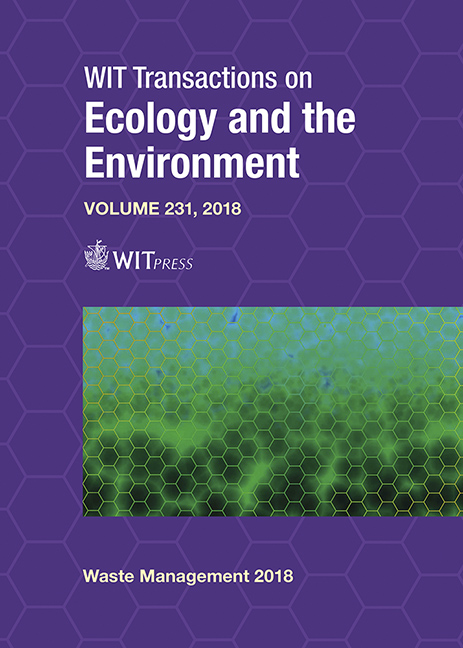EX SITU TREATMENT OF ORGANIC WASTES OR OIL-IMPACTED SOIL USING A SMOLDERING PROCESS
Price
Free (open access)
Transaction
Volume
231
Pages
10
Page Range
367 - 376
Published
2019
Paper DOI
10.2495/WM180341
Copyright
WIT Press
Author(s)
GABRIEL SABADELL, GRANT SCHOLES, DAVID THOMAS, CODY MURRAY, PAUL BIRETA, GAVIN GRANT, DAVE MAJOR
Abstract
An innovative treatment technology has been developed for the treatment of organic wastes. The technology utilizes the waste itself as the primary fuel for treatment via smoldering combustion. The process requires a heat source solely to initiate treatment. Once the process is initiated, treatment is sustained by continuously supplying air. The process may be implemented either ex situ or in situ, with this paper focused on the ex situ application for waste treatment or remediation purposes. This ex situ smoldering combustion treatment technology has been effectively demonstrated at field-scale for the management of oily wastes (e.g. tank bottom sludge, clarifier or pit sludge) and oil-impacted soil. Furthermore, the ex situ application has been demonstrated at pilot scale for domestic and commercial wastes (e.g. biosolids or sanitary sludge, kitchen grease) and ongoing development of the technology indicates other chemicals or wastes may also be effectively treated. If the waste is a combustible organic, or may be mixed with combustible organics, it is possible it may be treated with this technology. The Hottpad configuration is the culmination of collaborative research and technology development between Savron and Chevron. Each Hottpad unit has an engineered and trafficable working surface (or pad) equipped with a heat source to initiate the reaction, and an air distribution system to sustain the smoldering combustion that then propagates upward in the direction of air flow. Each Hottpad system is equipped with an emissions collection and treatment system, as necessary. The technology is cost-effective, robust, and applicable for a broad range of materials. Furthermore, the design is scalable and may be sized to meet project needs (from large centralized facilities, to smaller mobile treatment systems for remote sites). The Hottpad technology is very robust, both in terms of the range of materials that can be treated and from an operations perspective; it is cost-effective; it may be implemented on site, reducing off-site transportation, eliminating safety concerns, and reducing the overall remediation carbon footprint; and the treatment will meet stringent treatment or remediation requirements.
Keywords
smoldering combustion, remediation, oil-impacted soil, thermal oxidation, self-sustained





